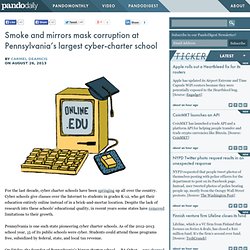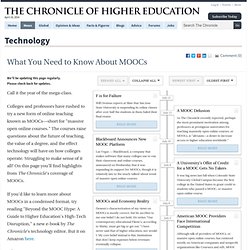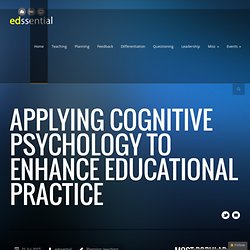

Contemporary Theories of Learning_ Learning theorists _. in their own words - Knud Illeris.pdf. Digital Natives, Digital Immigrants. Don’t Go Back to School: How to Fuel the Internal Engine of Learning. By Maria Popova “When you step away from the prepackaged structure of traditional education, you’ll discover that there are many more ways to learn outside school than within.”

“The present education system is the trampling of the herd,” legendary architect Frank Lloyd Wright lamented in 1956. Half a century later, I started Brain Pickings in large part out of frustration and disappointment with my trampling experience of our culturally fetishized “Ivy League education.” I found myself intellectually and creatively unstimulated by the industrialized model of the large lecture hall, the PowerPoint presentations, the standardized tests assessing my rote memorization of facts rather than my ability to transmute that factual knowledge into a pattern-recognition mechanism that connects different disciplines to cultivate wisdom about how the world works and a moral lens on how it should work.
People who forgo school build their own infrastructures. I learned how to teach myself. Smoke and mirrors mask corruption at Pennsylvania’s largest cyber-charter school. By Carmel DeAmicis On August 26, 2013 For the last decade, cyber charter schools have been springing up all over the country.

Cyber schools give classes over the Internet to students in grades K-12, who get their education entirely online instead of in a brick-and-mortar location. Despite the lack of research into these schools’ educational quality, in recent years some states have removed limitations to their growth. Pennsylvania is one such state pioneering cyber charter schools. As of the 2012-2013 school year, 16 of its public schools were cyber. On Friday, the founder of Pennsylvania’s bigger charter school — PA Cyber — was charged with fraud, for funneling $8 million of the school’s funds into his personal companies and holdings. The indictment raises questions about whether regulatory bodies need to monitor cyber schools more closely.
Youth cyber school programs are controversial in education. What You Need to Know About MOOCs - Technology. We'll be updating this page regularly.Please check back for updates.

Call it the year of the mega-class. Colleges and professors have rushed to try a new form of online teaching known as MOOCs—short for "massive open online courses. " The courses raise questions about the future of teaching, the value of a degree, and the effect technology will have on how colleges operate. Struggling to make sense of it all? On this page you’ll find highlights from The Chronicle's coverage of MOOCs. If you'd like to learn more about MOOCs in a condensed format, try reading "Beyond the MOOC Hype: A Guide to Higher Education's High-Tech Disruption," a new e-book by The Chronicle's technology editor.
What are MOOCs? MOOCs are classes that are taught online to large numbers of students, with minimal involvement by professors. Why all the hype? Advocates of MOOCs have big ambitions, and that makes some college leaders nervous. These are like OpenCourseWare projects, right? Sort of. Who are the major players? Applying Cognitive Psychology to Enhance Educational Practice. Edssential article from Robert Bjork : The primary goal of this research, which is funded by the James S.

McDonnell foundation, is to promote learning and memory performance within educational contexts through the investigation of principles in cognitive psychology. Studies address issues of transfer-appropriate and material-appropriate processing between encoding and retrieval. Applying tests in order to enhance learning and determining the desirable amount and timing of feedback regarding an individual’s memory performance are methods that are currently under investigation. The overlying theme of “desirable difficulties,” first introduced by Robert Bjork (1994), is also explored through manipulations in the spacing of learning events and the study schedule produced by interleaving various to-be-learned items, such as English-Swahili translated word pairs or prose materials.
Read More.